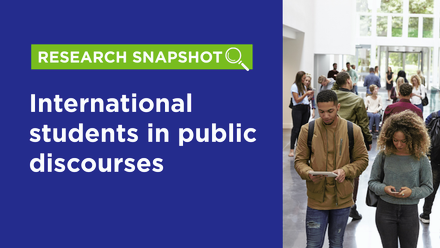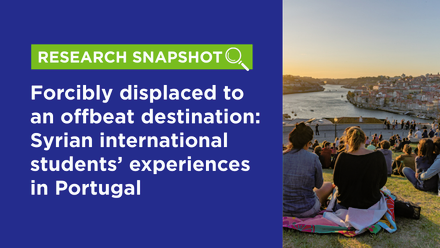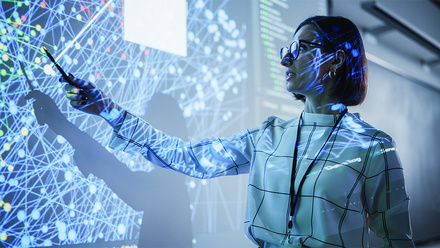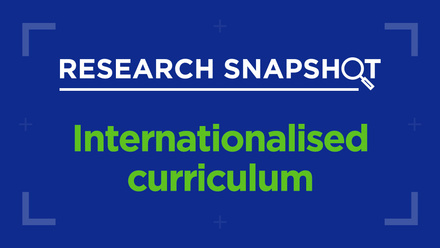Coping skills in the curriculum
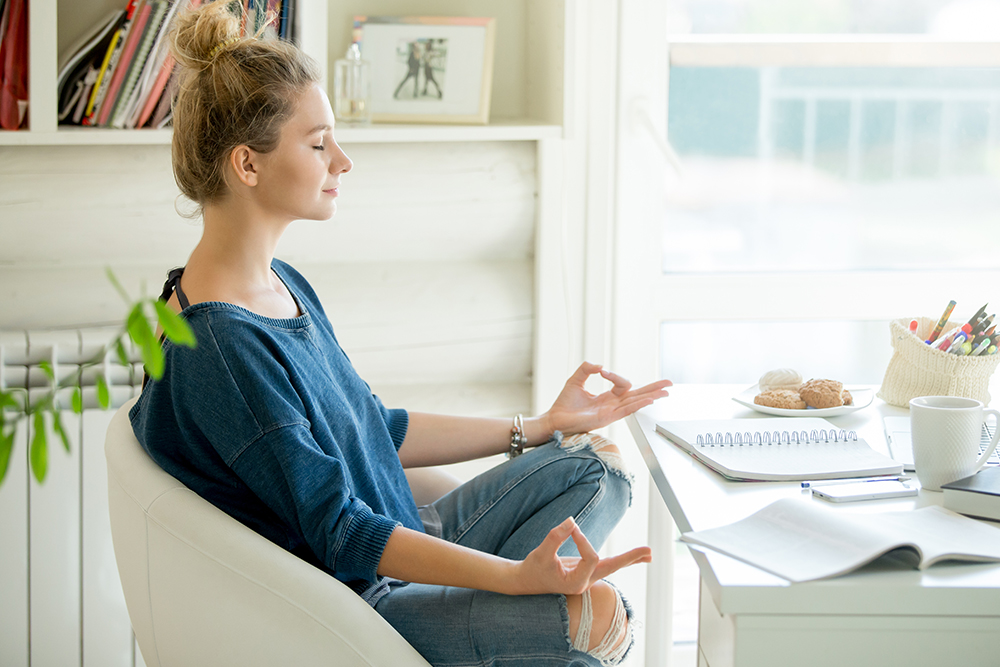
The second instalment of Forum Week brings us a student's perspective on resilience in the face of the COVID-19 pandemic. While studying abroad as part of an unconventional Bachelor's programme, a sudden lockdown in Argentina presented itself as the perfect opportunity to practice the very skills that experiences abroad are meant to foster. You can read more about how students, staff and institutions are confronting our challenging times in 2020 Winter Forum.
Breathing with a surgical mask on your face all day is not fun. Neither is trying to sleep. But here I am, attempting to doze off in the isolation sector of the German Hospital in Buenos Aires, where I am forced to wear a mask at all times, disinfect my hands every 15 minutes and speak to my nurse through a phone I am not allowed to put to my ear. The lights in my small room – a converted office with an old, creaky consulting table as a bed and a plasticky pillow – are supposed to remain on at all times. I have no natural light and no human company. When they bring food, they bring it on a cart and back off from the door. I am not a Spanish speaker but that is the only language the nurses speak, so we try the best we can. Luckily, the doctors speak German, a language I have been speaking since I was two.
That was me three weeks ago when I visited the hospital with inflamed ganglia, pains and a fever. Thankfully, I tested negative for COVID-19 and returned home the same day, but the experience was harsh. Not only was I physically isolated in a small room with cold hospital lighting, but I was also verbally isolated, given my limited Spanish skills.
Little did I know that the university education I was getting would be so crucial to my coping with this challenging time
Now I’m back to my life of quarantine and we’ve surpassed day 80 of lockdown in Argentina. While at first it felt romantic and cosy, staying inside a tiny studio apartment is starting to feel uneasy. The pandemic upended every plan I had. Little did I know that the university education I was getting would be so crucial to my coping with this challenging time.
An unconventional education
I grew up in Romania, attended a German school, moved to the United States to start my college education at Minerva Schools at KGI, based in San Francisco, and haven’t stopped moving around since. Minerva is different from your typical US college: experiential learning, a global experience and small seminar classes instead of lectures are its foundation.
My educational journey has taken me through seven countries in four years as I’ve been earning my Bachelor’s degree. I travelled, lived, learned and worked in San Francisco, Seoul, Hyderabad and Berlin before moving to Buenos Aires at the beginning of this year to start what I thought would be another regular Minerva semester.
While we move around, our professors don’t, so we attend our classes remotely on a state-of-the-art platform designed for educational purposes, based on the science of learning. In addition, we work with local organisations and immerse ourselves culturally in the city we live in. In other words, we are forced to adapt to a new lifestyle every four months.
My ‘normal’ Argentina semester has turned out to be nothing short of unpredictable. For one, the semester ended more than a month ago but I am still here. The borders closed and I remained stuck on a different hemisphere from the one that hosts my hometown of Timișoara. The borders closed and my peers and closest friends had left. That’s when decision-making, adaptability and resilience – all intentional parts of my education – came in handy.
Building real-world skills
Decision-making was important while engaging in scenario planning on a macro scale and day-to-day planning on a micro scale. I quickly realised that trying to plan ahead for the upcoming months would not work. I resorted to planning for just the day ahead: mostly my work tasks and the laundry waiting to be done. The rest – what to cook and what shows to watch – I leave up to my mood. As for the big decisions I need to make, such as deciding which city I will go to next autumn, or if I am going to go home this summer, I make mental use of decision trees, a skill I learned in my course on formal analyses. If commercial flights remain banned until September, I will only go home in September or after. If the crisis in the UK doesn’t diminish, I won’t choose London for my autumn semester and will go remote instead.
In my virtual Minerva classes, we apply mental frameworks we call ‘habits of mind and foundational concepts’ to multiple scenarios, to make decisions, settle complex challenges and handle ambiguity. We then apply them to novel contexts. Even during the COVID-19 crisis, I still find myself thinking along the same lines as I did in my first-year classes.
Adaptability came in handy with having my professional life online way before the pandemic hit. I have been working remotely for the past three years as an Admission Processor for my school. This professional flexibility helped me create my own online summer learning experience when internship programmes started falling through the COVID-19 cracks. In May, I started juggling two remote, part-time internships, reporting back to teams located in Europe, five hours ahead of me. While other people were discovering and playing with Zoom backgrounds, it was business as usual for me. Along with remote work, the fields I have chosen – digital marketing and strategic communications – are certainly adapted to a post-college career that will most likely occur online. Having my academic and professional lives online made it much easier to adapt to this quarantine lifestyle where the coffee table in my one-room apartment is my work desk during the day and a dinner table in the evening.
Putting the curriculum into practice
Lastly, I learned resilience through becoming a veteran at overhauling my life. I need to find a gym, favourite grocery shop, go-to café and secret city gem three times a year when we change cities for a new semester. Adapting to coronavirus regulations meant I needed to make this 30-square-metre apartment my work office, yoga sanctuary, park, restaurant and Netflix cinema at the same time. COVID-19 forced people to shift their lifestyles and to question their habits and comfort zones. By moving from a small city in Romania to five distinct global destinations, I had learned to live in different places on the same intern’s salary, pack a four-month-long life into two suitcases and cook with a limited number of kitchen utensils. I applied ‘constraint satisfaction’ as a way of living, and I believe this made me more adaptable. We learned and used constraint satisfaction in our classes while engaging in exercises to solve world hunger and water shortages. Now was the time to apply it in my own life. That’s what they call ‘far transfer’ at Minerva!
Most universities teach subjects such as physics or accounting and rely on their students to pick up life skills such as good decision-making and resilience along the way. Students around the world have encountered challenges in the past few months that they were not equipped for as the challenges were not part of the ‘curriculum’. Never have I been more appreciative of the kind of education I get at Minerva as I am now. I know it is preparing me for the real world – pandemic or not.

